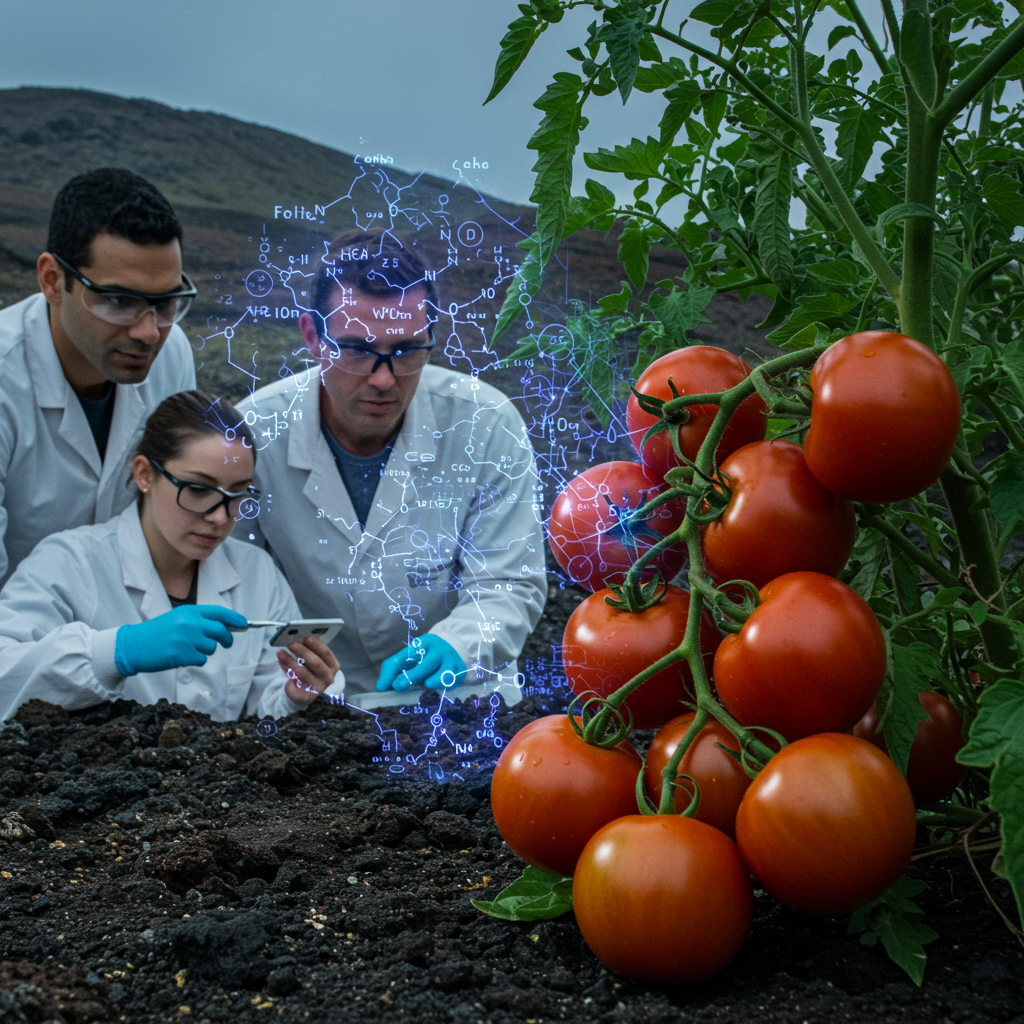A groundbreaking scientific endeavor is underway in the United Kingdom, aiming to achieve something previously confined to science fiction: constructing an entire human genome from the ground up. This ambitious undertaking could fundamentally alter our grasp of human biology and open doors to revolutionary medical treatments. The project is not without controversy, sparking widespread debate about the ethical boundaries of manipulating the very blueprint of life.
What is the Synthetic Human Genome Project (SynHG)?
Dubbed the Synthetic Human Genome Project, or SynHG, this initiative represents a monumental leap in genetic science. Instead of reading or editing existing DNA, researchers plan to synthesize human genetic code chemically in the laboratory. Think of it less like correcting typos in a book and more like writing an entirely new book from scratch. This project is distinct from the Human Genome Project completed 25 years ago, which focused on mapping and understanding the sequence of a human genome as it naturally exists. SynHG seeks to build one artificially.
The project is spearheaded by a team of UK-based scientists under the leadership of Professor Jason Chin at the Medical Research Council’s Laboratory of Molecular Biology (LMB) in Cambridge. Their primary goal over the next five years is to forge the foundational tools, technologies, and methods necessary to create large synthetic genomes.
Significant Funding Backs the Initiative
Providing critical financial muscle for this bold venture is the Wellcome Trust, one of the world’s largest medical charities. They have committed approximately $11.7 million (£10 million) in initial funding to get the SynHG project off the ground. The Trust acknowledges the significant ethical questions raised but asserts its belief that the potential benefits to human health and scientific understanding justify the undertaking.
Why is Synthesizing a Human Genome Important?
The motivations behind building a human genome synthetically are profound. Scientists believe this capability will unlock deeper insights into how our complex genetic code truly functions.
Understanding the “Dark Matter” of DNA
Our genome is vast, containing over three billion base pairs. While we understand many genes, a significant portion is often termed “dark matter” because its function remains largely unknown. By constructing and testing synthetic DNA sequences, researchers hope to illuminate the roles of these mysterious regions and grasp the intricate ways different parts of the genome interact to influence health and disease. This comprehensive understanding is akin to creating a detailed map of an entire city, not just noting the major landmarks. Research into other organisms, like the recent creation of a comprehensive pangenome for Asian rice, demonstrates how mapping and understanding total genetic diversity can pave the way for developing desirable traits like disease resistance and environmental resilience in crucial species.
Paving the Way for Novel Therapies
The potential medical applications are incredibly promising. The ability to synthesize large genomes could revolutionize biotechnology and medicine. Researchers envision creating “designer” cells for therapeutic purposes. These could include engineering cells resistant to immune system attacks or specific viruses, potentially offering new treatments for conditions like autoimmune disorders or chronic viral infections. Professor Chin suggests these insights could become directly useful in developing treatments for “almost any disease.”
Compared to current genome editing techniques, which typically target one or a few genes, genome synthesis allows for modifications on a far grander scale. This could help scientists determine how large segments of DNA dictate our characteristics and susceptibility to illness.
How Do Scientists Plan to Build Human DNA?
Synthesizing a human genome is a staggering technical challenge. It’s exponentially more complex than previous synthetic biology feats.
Scaling Up from Simpler Life
Professor Chin’s team previously achieved a significant milestone by synthesizing the complete genome of E. coli bacteria. However, the human genome is roughly 700 times larger. This difference in scale presents immense technical hurdles requiring entirely new approaches and tools.
Focusing on Chromosomes First
The initial phase of the SynHG project will focus on creating a full, synthetic human chromosome. This represents a manageable, though still immensely challenging, step towards the ultimate goal. Researchers estimate that synthesizing a complete human chromosome could take between five and ten years. Building the entire genome is expected to require many more years, potentially decades. The plan involves constructing these synthetic DNA sequences and then introducing them into living human cells, such as skin cells, to observe how they function.
The project involves collaboration among several leading UK universities and research centers, pooling expertise from institutions including Cambridge, Kent, Manchester, Oxford, and Imperial College London.
Navigating the Thorny Ethical Landscape
The concept of creating artificial human genetic material inevitably ignites intense ethical debate. Scientists have historically approached this frontier with caution, mindful of potentially ushering in a dystopian future often depicted in science fiction, like the idea of “designer babies.”
Addressing Concerns Proactively
Recognizing the gravity of these issues, the Wellcome Trust is not funding the scientific work in isolation. Crucially, they are simultaneously supporting a parallel research effort dedicated specifically to examining the social and ethical implications of creating human genomes in a laboratory. This critical work is being led by Professor Joy Zhang at the University of Kent.
This proactive approach is intended to ensure that ethical considerations are addressed head-on as the technology develops. As Tom Collins, senior research manager at Wellcome, explained, since this technology is likely to be developed someday, doing the research now allows it to be pursued in the most responsible and ethically upfront manner possible.
Potential Risks and Real-World Parallels
Critics voice concerns about the potential for such powerful technology to be misused. Scenarios mentioned include creating synthetic humans, developing biological weapons, or even engineering creatures containing human DNA. While scientists like Bill Earnshaw, a genetic scientist, acknowledge these fears, they also note that the technology required for such extreme applications is still quite distant. However, related fields like de-extinction efforts, such as those creating dire wolf pups using extensive genetic engineering, show that complex genomic manipulation and the creation of organisms with altered or synthesized DNA are becoming reality, bringing these ethical discussions to the forefront. Furthermore, some synthetic biology concepts, like creating “mirror bacteria” with opposite chirality, have been flagged by scientists as uniquely dangerous due to their potential invisibility to natural biological systems, highlighting the need for careful risk assessment in synthetic life research.
Specific ethical debates arising from genome synthesis could include new methods for preventing the transmission of mitochondrial diseases, but also questions around parental control over traits, or even speculative scenarios like licensing synthetic versions of a person’s genome. While some of these concerns currently rely on fairly far-fetched technology, the project aims to foster open discussion about the desired and undesired outcomes from the outset.
The Road Ahead for Human Genome Synthesis
The launch of the Synthetic Human Genome Project marks a pivotal moment in the history of genetics and synthetic biology. It represents a bold stride towards not just reading the code of life, but writing it.
While the technical challenges are immense and the timeline for creating a full synthetic human genome stretches years into the future, the potential rewards in understanding fundamental biology and developing new medical paradigms are significant. By coupling the scientific pursuit with a dedicated effort to navigate the complex ethical landscape, the SynHG project aims to advance this frontier responsibly, confronting the profound questions raised by the ability to synthesize human life’s most basic instructions.
Frequently Asked Questions
What is the goal of the Synthetic Human Genome Project (SynHG)?
The primary goal of the SynHG project is to develop the technologies and methods needed to synthesize an entire artificial human genome from scratch. This aims to deepen scientific understanding of genome function, including less-understood regions, and create opportunities for developing advanced medical treatments like designer cell therapies and virus-resistant tissues.
Who is leading the SynHG project and where is the ethical research based?
The Synthetic Human Genome Project is led by Professor Jason Chin based at the MRC Laboratory of Molecular Biology in Cambridge, UK. Alongside the scientific work, a parallel research effort specifically examining the social and ethical implications of this technology is being led by Professor Joy Zhang at the University of Kent, also in the UK.
What are the biggest ethical concerns surrounding human genome synthesis?
Major ethical concerns include the potential for misuse, such as creating “designer babies,” synthetic humans, or biological weapons, although the technology for these remains distant. There are also concerns about granting scientists excessive control over human biology and the broader implications for society, prompting the project to include a dedicated ethical research component.
Word Count Check: 1138 words




